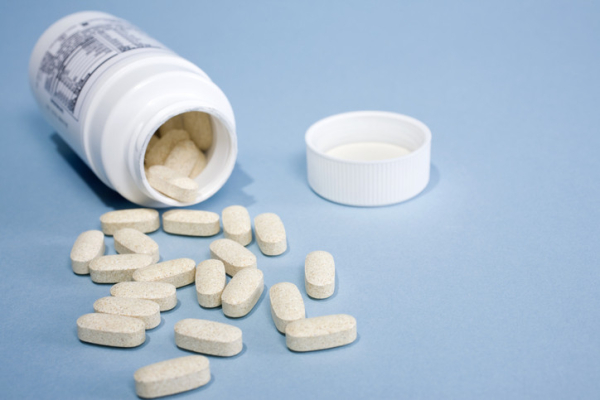
We’re bombarded with advertisements that tout all sorts of health benefits for vitamins and supplements, including improved memory. A May 2023 study of older adults suggests that a daily multivitamin can do just that — improve your memory enough such that it can function as if you were three years younger.
So, should you take that daily multivitamin? Let’s take a close look at the study.
Who took part in this multivitamin study?
This research is part of a larger study examining the effects of a multivitamin and/or cocoa (the main ingredient in chocolate) on cardiovascular and cancer outcomes. A prior sub-study found that a daily multivitamin improved thinking and memory — at least when evaluated with cognitive testing completed by phone.
For this study, 3,562 participants were willing and able to perform some tests of thinking and memory on a home computer. Half received a multivitamin; the other half received a placebo.
The participants identified as 93% white, 2.5% African American, and 1.4% Hispanic, so the results may not be generalizable. They were also well educated: more than half had completed college. In both groups, the average age was 71.
How did the researchers test memory?
The investigators evaluated the participants’ thinking and memory at baseline and after one, two, and three years.
For the memory test, participants were asked to memorize 20 words shown consecutively on a computer screen. Immediately after viewing these words, they had to type in as many words as they could remember (this was the primary measure of memory). Fifteen minutes later, they also typed in all the words they recalled (a secondary measure of memory).
Other secondary measures included:
- a novel object discrimination test (is this object the same or different from one recently shown?)
- an executive control test (in an array of nine arrows, is the central arrow red or blue?).
The participants repeated all of the tests one, two, and three years later.
What were the results of this study?
The two groups differed in immediate recall at year one:
- Those who took a placebo went from immediately recalling an average of 7.21 words at baseline to 7.65 words (a difference of 0.43 words)
- Those who took a daily multivitamin group went from 7.10 words at baseline to 7.81 words (a difference of 0.70 words).
This result was statistically significant. Additionally, these small effects held up at years two and three. By year three, the placebo group immediately recalled an average of 8.17 words and the multivitamin group immediately recalled 8.28 words.
No differences occurred between the two groups on secondary memory and executive function tests.
How can a multivitamin improve memory?
The authors note that low levels of vitamins B12 and D have been linked to cognitive decline and dementia. In a subset of participants who had their blood drawn, the levels of these vitamins did rise in the multivitamin group.
It seems plausible that a few of the 3,562 participants had low levels of these or other vitamins that are important for thinking and memory. In the placebo group, the few who had vitamin deficiencies would likely show less improvement in memory after their baseline tests, or a small decline. By contrast, those few participants in the multivitamin group with deficiencies would have them corrected by the supplements and, therefore, would perform relatively better.
Although this is just speculation, it would explain the small but seemingly real results — results that replicate the researchers’ prior study, which used a telephone cognitive test to show thinking and memory benefit from a daily multivitamin.
It’s also worth noting that practice on memory tasks — the so-called practice effect — could contribute to small improvements shown from baseline to year one and year three.
Should you take a multivitamin to improve your memory?
The authors admitted that the effect of the multivitamin on immediate memory was small and may not be noticeable. However, they pointed out that this small effect could be important at the level of an entire population.
My opinion? You shouldn’t bother taking a multivitamin to try to improve your immediate recall of 20 words from 8.17 to 8.28 words. But it is worth speaking with your doctor about whether you could have a vitamin deficiency in B1, B6, B12, D, or any other important vitamins. I see several patients in my clinic every week who have startlingly low levels of vitamin D and B12. Your doctor may want to measure these levels. Or they may suggest simply taking a multivitamin daily.
If, after reading this article, you’ve decided to take a multivitamin, please check with your doctor or pharmacist about which one would be best for you. Make sure that they review any other vitamins, supplements, and medications you take to avoid rare but serious interactions.
About the Author

Andrew E. Budson, MD, Contributor; Editorial Advisory Board Member, Harvard Health Publishing
Dr. Andrew E. Budson is chief of cognitive & behavioral neurology at the Veterans Affairs Boston Healthcare System, lecturer in neurology at Harvard Medical School, and chair of the Science of Learning Innovation Group at the … See Full Bio View all posts by Andrew E. Budson, MD


